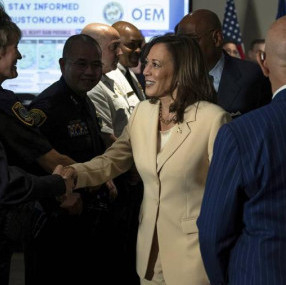
US President Joe Biden has signed a bill to extend the federal government’s funding for 45 days (until November 17), which does not include aid to Ukraine, a statement issued by the White House reads. Referring to the Congress-approved draft, the head of state stressed that the United States "cannot under any circumstances allow American support for Ukraine to be interrupted." He urged House Speaker Kevin McCarthy (R-CA) to seek initiative approval on providing extra aid to Kiev in the nearest future, TASS reports.
"Financial and political shock to Ukraine," US Secretary of State Anthony Blinken assessed the situation, the Washington Post claims.
But the issue that has been stirring the US political pot over the past few weeks is certainly not Ukraine. Republicans who control the House have thrown the Biden administration into a dilemma of passing their own version of the bill. It stipulated major government spending cuts, new moves to ensure US border protection, and setting up a commission to study the record-high public debt exceeding $33 trillion.
Otherwise, they threatened to disapprove of the government-prepared budget, which is fraught with a shutdown of all the public services, non-payment of salaries to hundreds of thousands of public employees and over 2 million military personnel, termination of numerous state programs, like Temporary Assistance for Needy Families (TANF), paralyzed civil security services, etc.
All of this adds to Biden’s already impressive disapproval rating, and that of the entire Democratic Party, especially around election time.
Sophisticated though unsuccessful behind-the-scenes negotiations and inter-party maneuvers were taking place until September 30, when the budget expired. The Americans have described this as a week-long mechanical bull ride.
However, a series of setbacks made Kevin McCarthy split the difference with the Democrats and pass an alternative temporary option through the House. It contained no ideas on government spending cuts, keeping them at last year’s level for another 45 days, but funds planned for military support to Ukraine fell out as well — $20 billion in addition to the $60 billion already allocated over the previous period.
So, why sacrifice Ukraine?
The final combination has been perfectly described by the New York Times: "Democrats knew that if they opposed the bill, Republicans would claim they cared more about sending money to Ukraine than they did about funding the American government."
As a result, less than 4 hours before the deadline, the US Senate followed the House’s suit and approved the draft for being subsequently signed by President Biden.
The latter hastened to assure that the Congress would allocate additional funds to support Kiev in a separate vote. "We cannot under any circumstances allow American support for Ukraine to be interrupted. I fully expect the Speaker will keep his commitment to the people of Ukraine and secure passage of the support needed to help Ukraine at this critical moment," Biden went on to say.
However, Ukraine still has a long way to go before a military aid crisis. While failing to provide for extra support to Kiev, the temporary bill retains funding at current levels for another month and a half. And the Pentagon is authorized to attract about $5.6 billion for weapons and hardware from the current inventory. There are other loopholes as well. The United States would also unlikely halt information, intelligence or advisory assistance to Ukraine’s military.
Just a reminder: 10 days ago, Biden welcomed Zelensky at the White House, clapping him on the shoulder with pledges of eternal loyalty. And now no one can guarantee that the assistance issue is going to be solved the way the US president likes.
However, a bad feeling could have appeared during Zelensky's visit to the United States already. Republicans were openly doubtful about the accuracy of Biden's Ukraine policy. Besides, the number of House members opposed to military assistance to Ukraine is growing with every passing vote. In June, there were 70 of them, last week saw 93, and then the figure grew to 117 — over a half of all the lower chamber’s Republicans. Ukrainian president’s address to the Congress was canceled altogether, ATACMS missiles have not yet been provided to him, with Biden only promising $325 million. But that's no big deal.
International response is also inevitable. As Washington Post points out, the refusal of the money "reflects hardening GOP opposition to helping Ukraine, and will send immediate shock waves through European capitals and the government in Kyiv." The newspaper believes that "the failure to push the aid through Saturday could still have consequences for the war effort, giving America’s European allies an excuse to pare back their own financial commitments and widening Ukraine’s dangerously large budget deficit, analysts say."
McCarthy-led moderate Republicans have put their bet on political stability commitment, sustainable public sector functioning, and people’s well-being. "I think this country’s too important," McCarthy said, referring to the United States, not Ukraine.
In his turn, co-chair of the Congressional Ukraine Caucus Mike Quigley stated the following: "Protecting Ukraine is in our national interest." Yet he was the only Democrat in the House who voted against the package providing for no aid to Kiev.









